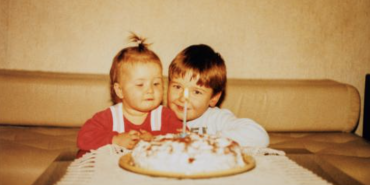Careful Conversations

The rebuke was painful for two reasons: I deserved it and I should have known better. My careless words could have deepened wounds in a divided congregation. I was sharply reminded of my moral and community responsibility to exercise stewardship over what I say and do.
I had spoken as a 'poster child' for a disease that plagues our culture. It undermines Christian discipleship and discredits the Church. The disease is intemperate and ill-informed speech.
The disease thrives in a culture where round-the-clock news media serve up 'shout fests,' but bill them as 'informed and balanced' dialogue. The economic benefits of being 'first to break the story' weigh against cautious and seasoned transmission of information. Carefully analyzed claims and ideas succumb to clever sound bites and 'back after this commercial.' Enhanced viewer ratings that result from habitually interrupting 'guests' before they can complete a sentence exacerbate the disease. Scorn for humane discourse, mockery of truth, and declining civility result.
Ready access to means for quickly transmitting information increases the likelihood that baseless or half-baked information will race through cyberspace. Any oaf can instantly spread errors around the globe. Once unleashed, they are seldom corrected.
This is light years removed from 'the new creation' the New Testament presents (2 Corinthians 5:17). Matthew to Revelation pictures a new form of human life being shaped in the image of Christ-a comprehensive reconstruction of the self in community. This is in sharp contrast to the old earthly way of living that results in spiritual death and decomposition.
The Apostle Peter said violence, crafty manipulation of others, and all forms of deceit would have to yield to holiness in all manner of conduct (1 Peter 1:13-2:3). Paul said the Colossian Christians should 'put to death' all that characterized their old pagan lives - anger, wrath, malice, slander, and abusive speech (Colossians 3:5-11). The Roman Christians should 'lay aside the works of darkness and put on the armor of light' (Romans 13:12, NRSV).
Christian holiness entails practicing 'a holy decorum' in thought, speech, and action.
Remember, Peter and Paul were instructing Christians living in a predominantly pagan world.
Truth-telling, renewing our minds, and governing our speech are essential characteristics of the 'new creation' (Colossians 3:5-11). A love for truth is inseparable from a love for Christ, who is the Truth. Loving and telling the truth cultivate integrity and make true community possible. Renewing our minds means cleansing and transforming our thought lives and self-understanding. Our speech must serve truth as it is in Christ.
Inattention to any of these undercuts discipleship and reflects negatively upon our Lord. The Epistle to the Philippians summarizes this as pursuing all that is true, honorable, just, pure, lovely, commendable, and excellent (Philippians 4:8-9).
Even that limited picture of 'the new humanity' shows why Christians must rigorously avoid harboring the disease of intemperate and ill-informed speech. If we don't, we will accelerate the decline of civility and community happening in the 'public square.' We will end up bearing witness against the gospel instead of to it. Paul's counsel becomes more urgent: 'Don't let the world around you squeeze you into its own mold' (Romans 12:1-2, PHILLIPS).
This calls for diligent and strategic action. Let's examine strategies for treating the disease.
First, let's sweep around our own back doors.
1. Before we absorb information as true, and then transmit it to others, do we scrutinize its source? Are we resolutely opposed to passing along inaccurate or demeaning information? Do generalizations--the calling card of careless speech--enjoy 'reserved parking' in our minds? Is 'favored status' granted to positions and persons with whom we agree, while we shove aside opposing positions? Do we make truth serve our political and cultural biases, and then turn it into a fierce warrior against positions and persons with whom we disagree?
2. Does our process of handling information demonstrate a respect for the dignity of all persons? Does it reveal that we believe all persons are the active scene of God's prevenient grace, and the object of his redeeming love?
3. Does the way we process information reveal that we believe Jesus inaugurated the kingdom of God, and that He is bringing it to completion? Is our belief evidenced by a love for everything that is commendable, just, pure, lovely, and excellent (Philippians 4:8-9)?
These questions will require confession and vigilance. They identify a demanding and unending project--one to which we must be committed if our Christian witness is to be taken seriously.
Second, what should we do about persons who pass along information we suspect or know to be erroneous, biased, demeaning of others, or just plain 'dumb?'
My Internet provider offers an 'anti-spam system.' It traps questionable incoming messages, sends the titles and E-mail addresses to me, and gives two options: 'accept' or 'reject.' A comparable system needs to be part of our mental and moral hardware (the Epistle of James offers a free 'user' manual).
We need to inform others that our 'system' is 'turned on' and functioning. Ask the purveyor of suspected 'junk mail' if they have carefully checked their information. You might ask, 'Does that strike you as fair and believable?' Such questions telegraph, 'Don't send that 'stuff' to me!' A frown or refusal to smile or laugh might accomplish the same thing. Sometimes, in love, we might have to rebuke a 'sender' by saying that spreading questionable information flies beneath the speech and conduct Christians should model.
Encourage them to expect better of themselves. Protecting a friendship at the expense of permitting ourselves to become dumps for 'junk' is a price the New Testament will not accept.
Al Truesdale is emeritus professor of philosophy of religion and Christian ethics, Nazarene Theological Seminary.
Please note: All facts, figures, and titles were accurate to the best of our knowledge at the time of original publication but may have since changed.




